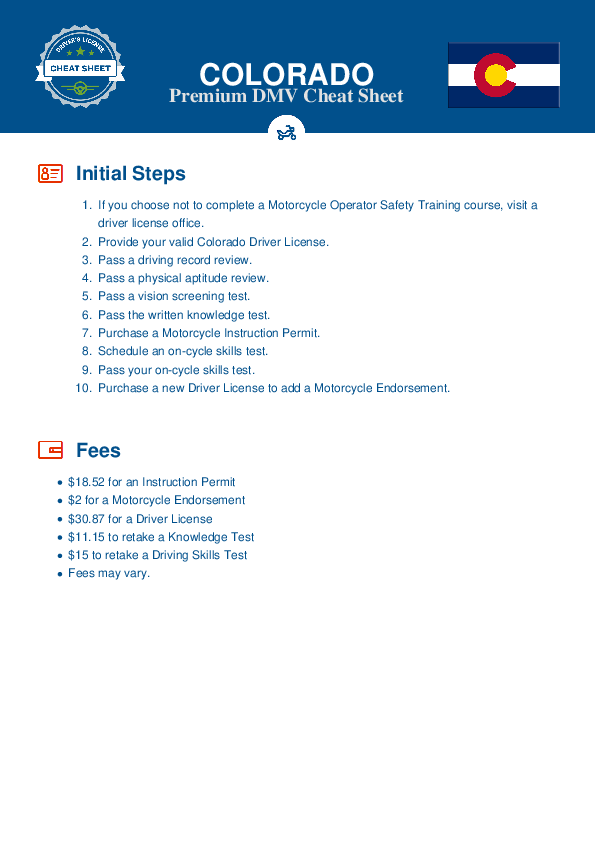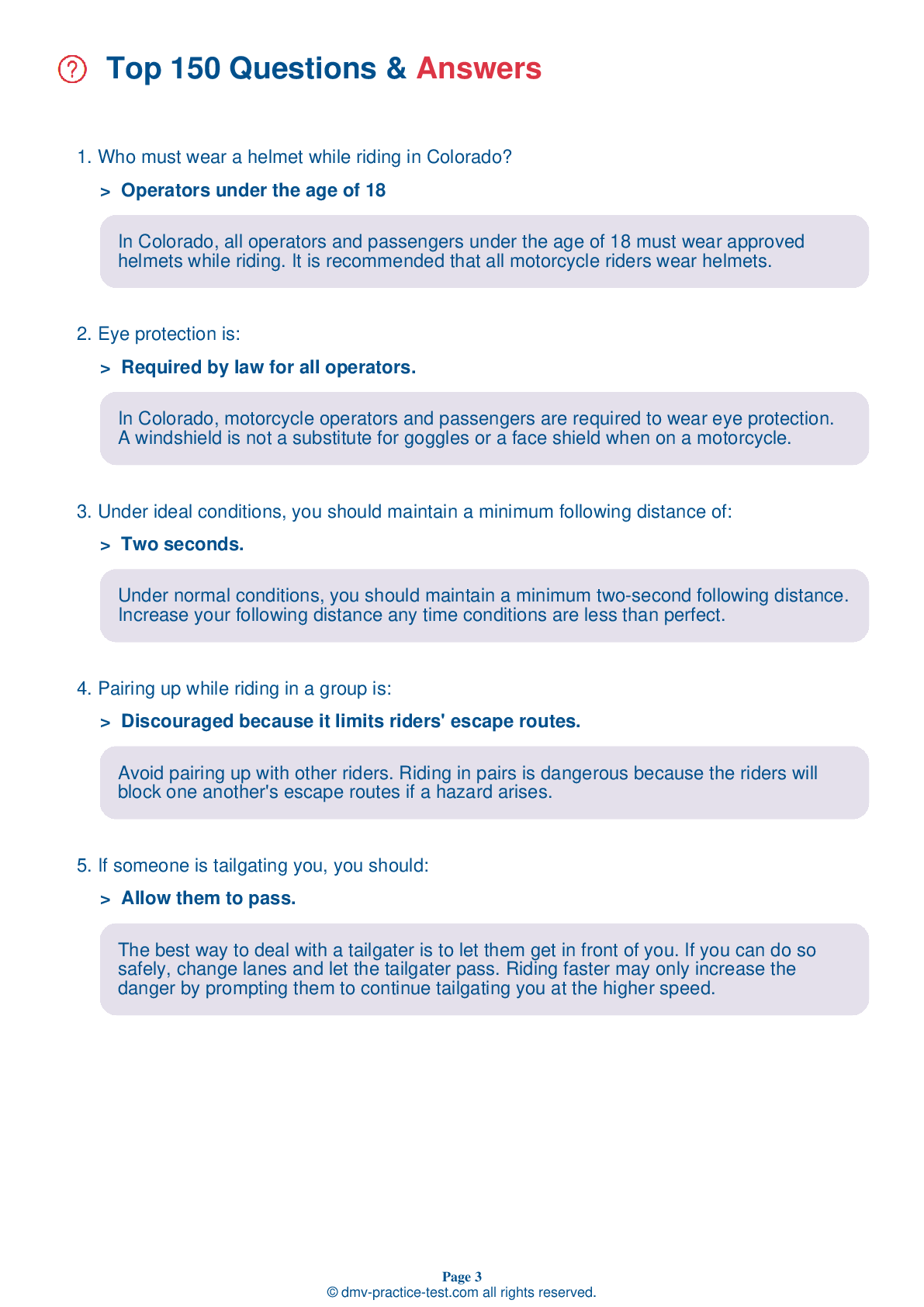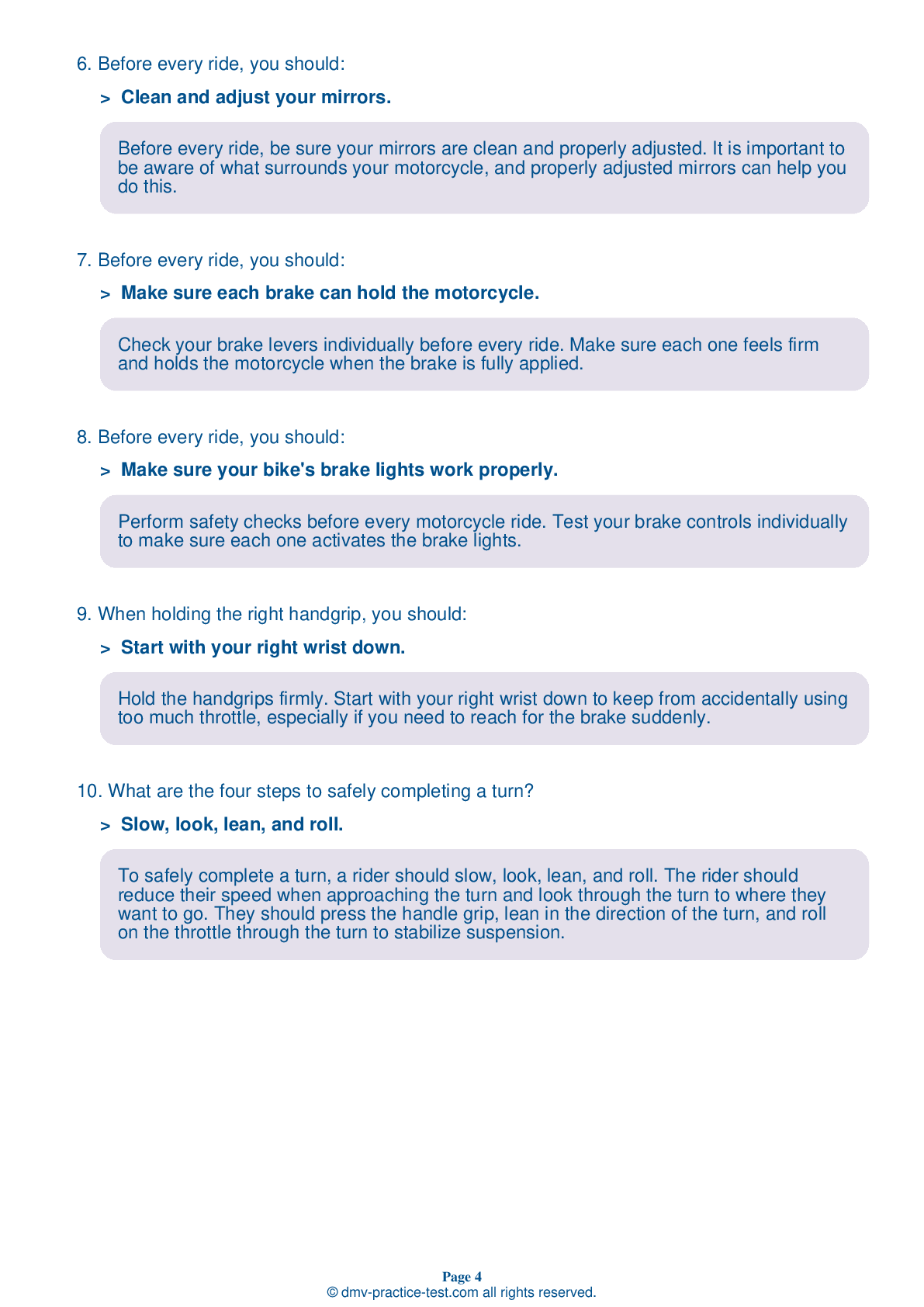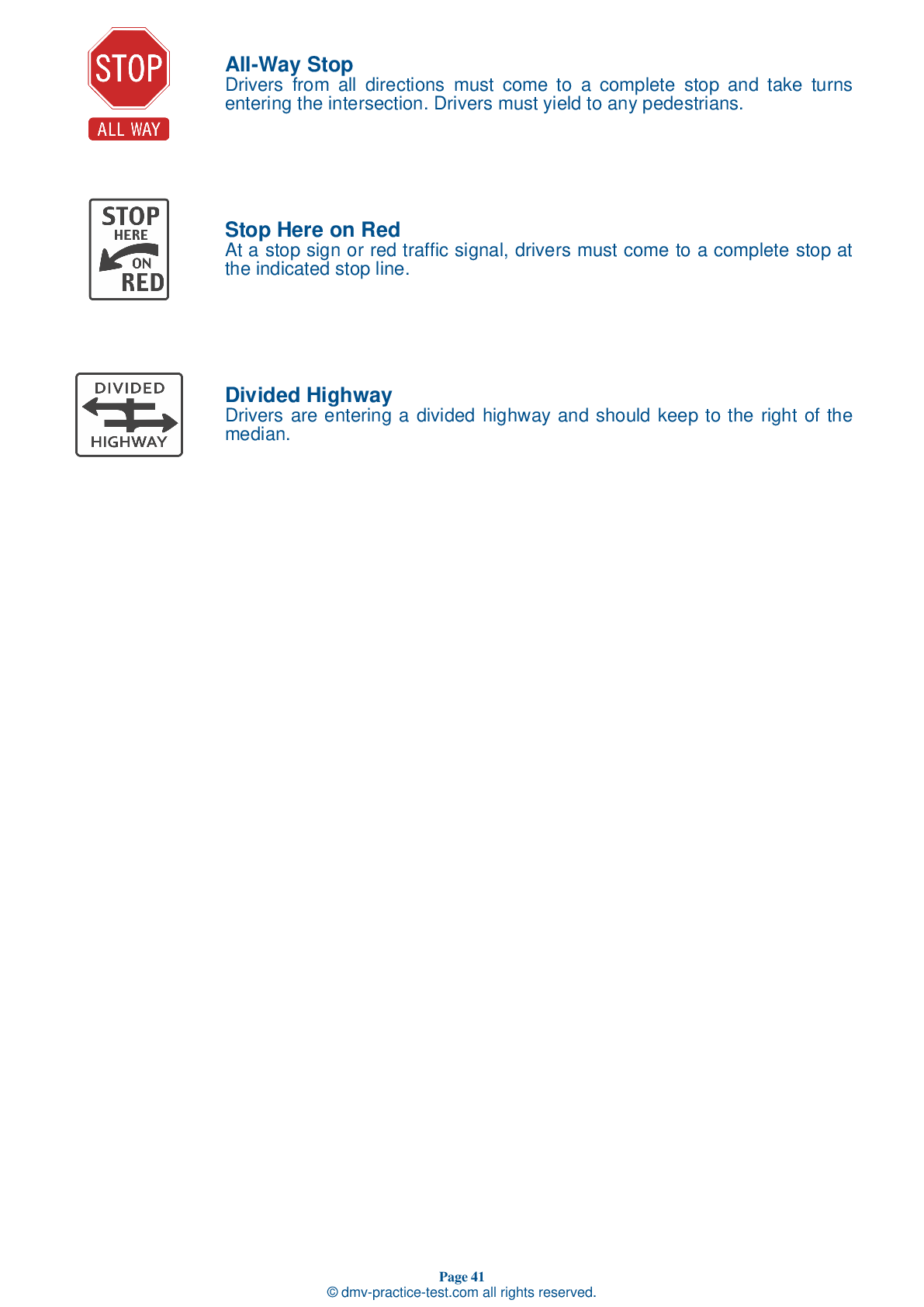Motorcycle Test | License CO 2025 | FREE Online Practice! #6 Page 4 of 4
Take this FREE motorcycle test (license in CO 2025) to check your knowledge of the road rules. To improve your results, download a motorcycle handbook online, study theory, and practice for free on our website. Still worried about how to get a motorcycle license in Colorado in 2025? Check our website for more sample tests, train as much as possible, and boost your grades!
19 . Pairing up while riding in a group is:
Avoid pairing up with other riders. Riding in pairs is dangerous because the riders will block one another's escape routes if a hazard arises.
20 . A DOT-compliant helmet has all of the following, except:
Any U.S. Department of Transportation-compliant helmet is required to have an impact-resistant outer shell, an impact-absorbing inner liner, a comfort liner, and a chinstrap retention system.
21 . When riding at night, a motorcyclist should:
Riding at night can be dangerous because a rider’s ability to see and be seen by fellow motor vehicle operators is limited. It is recommended that riders adjust their riding behavior to compensate for this limited visibility by reducing their speed, maximizing their headlight usage, and increasing their following distance.
22 . When you are being passed by a vehicle on your left, you should:
When being passed, it is best to ride in the center portion of your lane. Riding on the side nearest to the passing vehicle increases the risk of a collision. Riding on the side farthest from the passing vehicle is also dangerous because it may tempt them to merge back into your lane too soon. Stay in the center portion of the lane when being passed.
23 . If you are riding behind a car, you should:
When riding directly behind a car, it is usually safest to ride in the center portion of your lane. If you are riding in the center of the lane, you are most likely to be visible in the rearview mirror of the vehicle ahead. Most drivers check their rearview mirror more frequently than they check their side mirrors.
24 . You should use your low beam headlight:
Use your high beam whenever you are not following or meeting a car, even during the day. Use your low beam when riding in fog.
25 . Do not change gears on railroad tracks because:
It is best not to shift gears when crossing railroad tracks. There is a chance your motorcycle might stall while you are on the tracks.
See the exact questions that will be on the 2025 Colorado DMV exam.
99.2% of people who use the cheat sheet pass the FIRST TIME
Jeneen was tired of paying $5/gallon. She got herself a scooter that required the motorcycle license. She studyed the motorcycle test cheat sheet and passed her test the next day!
Christopher tells us how he knew nothing prior to obtaining the motorcycle study guide, and he only got one question wrong because he clicked on the wrong answer by mistake.



